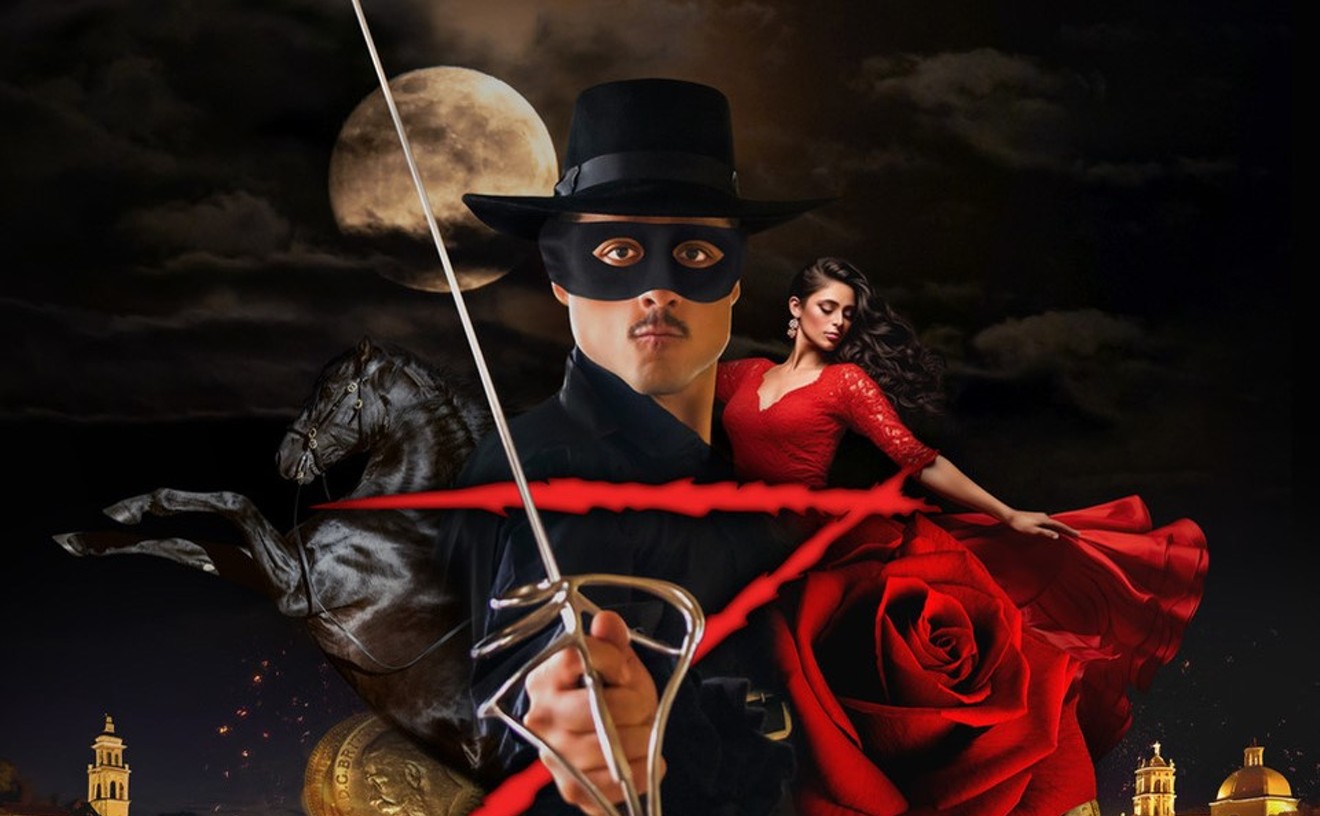Because The Fantasticks isn't, after all, just a piece of musical theatre. It's a statistical anomaly--the longest-running musical in the world!
Nobody can really figure out why, although many have tried. Theatre critics seemed to have been the least perceptive on the matter: After attending opening night on May 3, 1960, Brooks Atkinson of the New York Times ended his review by saying "perhaps The Fantasticks is by its nature the sort of thing that loses its magic the longer it endures." So what did he know? Whenever the producers threaten to close the show down, the public outcry is such that, magic or not, the thing might very well endure as long as the Statue of Liberty.
Phoenix Little Theatre, though, has the difficult burden of presenting not a reenactment at a shrine, but the production of a musical that has become quite fragile. The Fantasticks creators Tom Jones and Harvey Schmidt used their particular genius by doing away with the bloated, Rodgers and Hammerstein tradition of the time, and reducing the whole musical-comedy business to a pair of lovers on a platform with a piano handy. Anything more and we've taken that dangerous first step toward Andrew Lloyd Webber.
The most charming aspect of The Fantasticks is the score, and watching the onstage pianist gleefully pound out the overture sets the tone for its "Let's put on a show" approach. The Phoenix Little Theatre production, however, directed by Michael Barnard, couldn't resist the temptation to improve on what can't bear improvement. Substituting a badly amplified pit band defies logic, and the orchestration of the score ruined it. If you've ever watched a bride and her father dance to "Try to Remember" at a wedding reception, that was about how this evening went musically.
The staging itself was also gussied up to no advantage. As if the director was afraid of the show's inherent bare stage concept, the "garden" setting was made literal with some cute fabric trees framing the proscenium, and at inexplicable intervals, an eight-member chorus would emerge and wave streamers and other props. The principal characters were clothed according to the original spirit of the play--outfits you'd find in a costume trunk--but the chorus was coordinated as a band of harlequins, I guess, or maybe extras from Pippin. Whoever they were, they didn't belong in The Fantasticks.
Purists will also have a bone to pick with this particular version's updating to be politically correct. A few years back, it reached the ears of the lyricist and composer that theatres throughout the nation considering The Fantasticks for production didn't feel comfortable staging a musical number called "The Rape Ballet." That this most innocent of musicals has nothing to do with sexual assault--the number is an opportunity for the boy to rescue the girl from hired abductors--has never been questioned. But ever willing to enhance the show's potential for perpetuity, the authors wrote an alternate number, called "The Abductions Ballet." I suppose I wouldn't care one way or the other, except that the lyrics to "The Abductions Ballet" are about one-tenth as funny as those to "The Rape Ballet." Who'd ever imagine The Fantasticks needed to be censored?
Those who have never seen the show in New York, however, or who always demand dancing chorus members in their musicals, still need to know that this production fails because the singing just isn't good enough. The narrator El Gallo, played by Hal Adams, is the weak link that drags down the show from beginning to end. He looks dashing in the part, but couldn't project past the first row. Amy Jo Arrington as Luisa had the best voice of the cast, but was vocally mismatched with David Jones as Matt, who wore a body mike that Arrington could be heard through whenever the love duets got intimate. The production was saved only when the two fathers, played by Matthew Mazuroski and Ben Tyler, launched into their comedy numbers.
Mention The Fantasticks to a New Yorker and you'll get a pitying look. Going to see it ranks about as high as gawking at the Empire State Building. But in its pure, unadulterated form, it's a particular kind of musical that hasn't been successfully imitated before or since.










